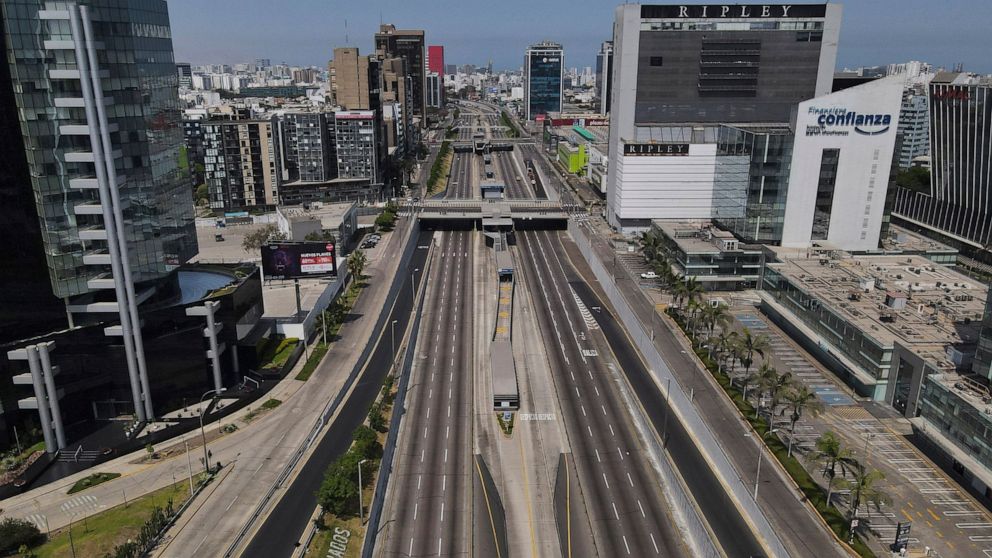
Peru imposes curfew to quell protests over rising prices
ABC News
Peru’s capital city and main port are under a tight curfew decreed by President Pedro Castillo in response to violent protests over rising fuel and food prices, with armed soldiers and police deployed to enforce the measure
LIMA, Peru -- Peru's capital and its main port were under a tight curfew Tuesday decreed by President Pedro Castillo in response to violent protests over rising fuel and food prices, with armed soldiers and police deployed to enforce the measure.
The surprise curfew and emergency measures announced shortly before midnight were decried by the opposition as illegal and marked the first time since the government of now-jailed strongman Alberto Fujimori that Peruvian authorities ordered people to stay at home to control protests. On April 5, 1992, Fujimori shut down Peru's congress and judicial system, and sent tanks into the streets amid social and economic unrest.
On Tuesday, major highways and street markets in Lima were almost deserted, and the main bus and public transportation lines were out of service. The empty streets resembled the tightest lockdowns of the COVID-19 pandemic which hit Peru badly, leaving more than 212,000 people dead.
“It’s a shame. We’re experiencing a terrible economic situation, brother,” said Juan Gutiérrez, a 45-year-old father of four who had been waiting in vain for a bus for more than an hour so he could get to a clothing workshop where he is paid by the piece.
